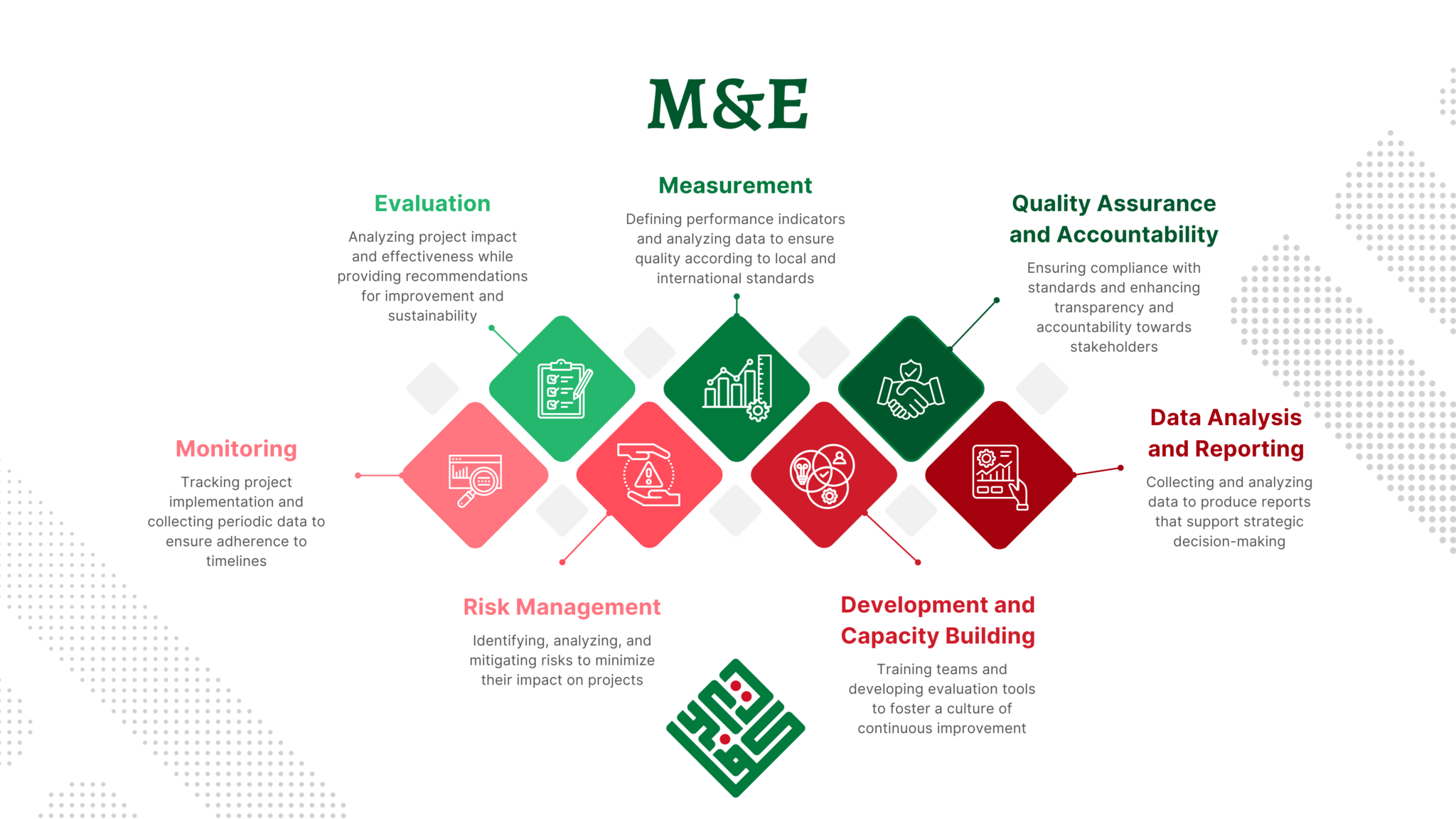
Kafaat for Reconstruction
Monitoring, Evaluation and Measurement Department
Monitoring, Evaluation and Measurement Department
The Monitoring, Evaluation, and Measurement (M&E) Department is responsible for evaluating performance, ensuring the quality and effectiveness of projects and programs, and ensuring they achieve their desired objectives. The department does this through the following tasks:
Monitoring
Evaluation
Measurement
Quality Assurance
Data Analysis
Development
Risk management
1- Monitoring
● Track the implementation of projects and activities according to the specified timelines.
● Regularly collect data on performance and agreed-upon indicators.
● Prepare and submit periodic reports on project progress and challenges.
2- Evaluation

Analyze
Analyze the impact and effectiveness of projects based on clear and specific criteria.
Provide recommendations
Provide recommendations to improve performance and enhance sustainability.
● Develop accurate performance indicators to measure project success.
● Analyze field data and extract evidence-based insights.
● Benchmark performance against local and international standards to ensure quality.
● Ensure that projects are implemented in accordance with approved standards and policies.
● Promote transparency and accountability towards donors and beneficiaries.
● Develop feedback mechanisms and respond to beneficiary feedback.

5- Data Analysis and Reporting:

Collecting
Collect and analyze data to extract lessons learned.
Preparing
Prepare comprehensive reports that highlight strengths and opportunities for improvement.
Presenting
Present evaluation results to decision-makers to support strategic planning processes.
6- Development and capacity building
● Train teams on modern monitoring and evaluation tools and methods.
● Develop effective measurement models and tools to ensure data accuracy.
● Promote a culture of continuous evaluation, accountability, and development within the organization.
● Propose new departments or mechanisms to support processes and activities.
7- Risk management
● Monitor and identify potential risks during project implementation, particularly those that impact performance and quality
● Analyse data to identify risk patterns that may impact the achievement of objectives.
● Provide recommendations for risk mitigation based on periodic assessments and follow-up.
● Ensure compliance with standards and policies that reduce the likelihood of operational and financial risks.
● Promote transparency and accountability in risk management and effective response.


